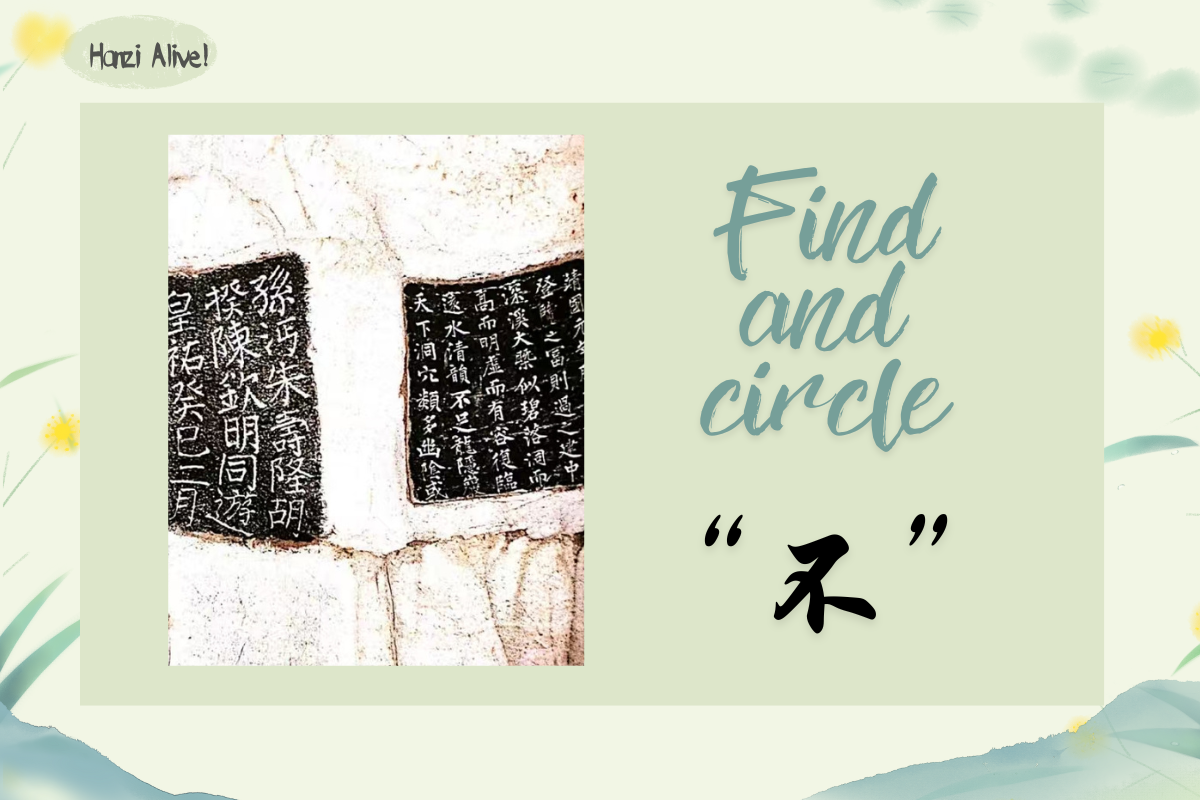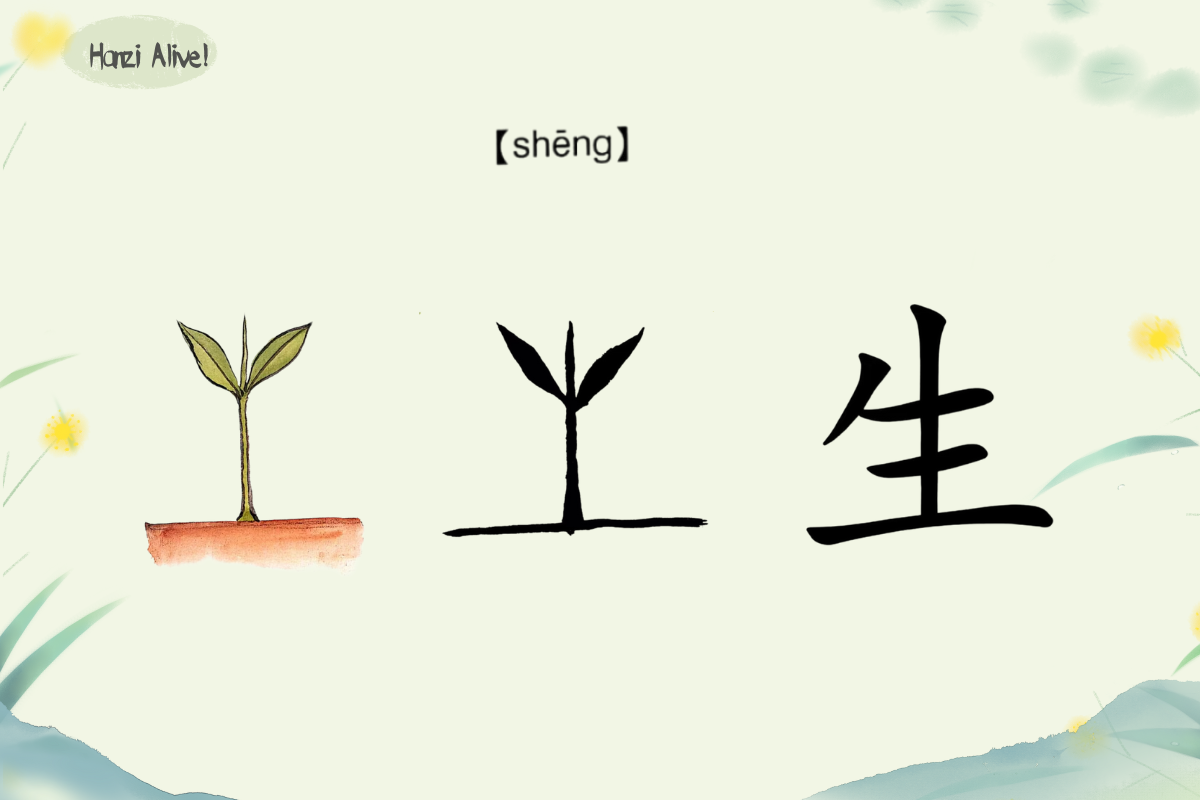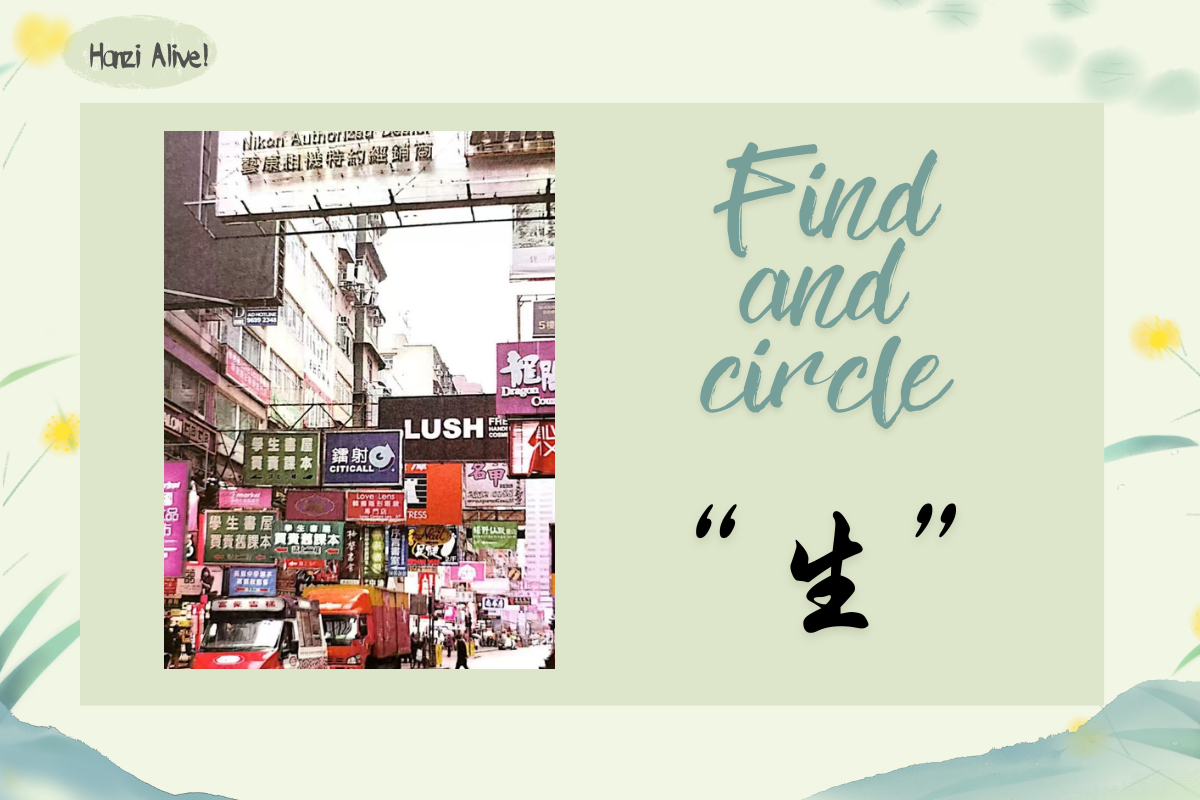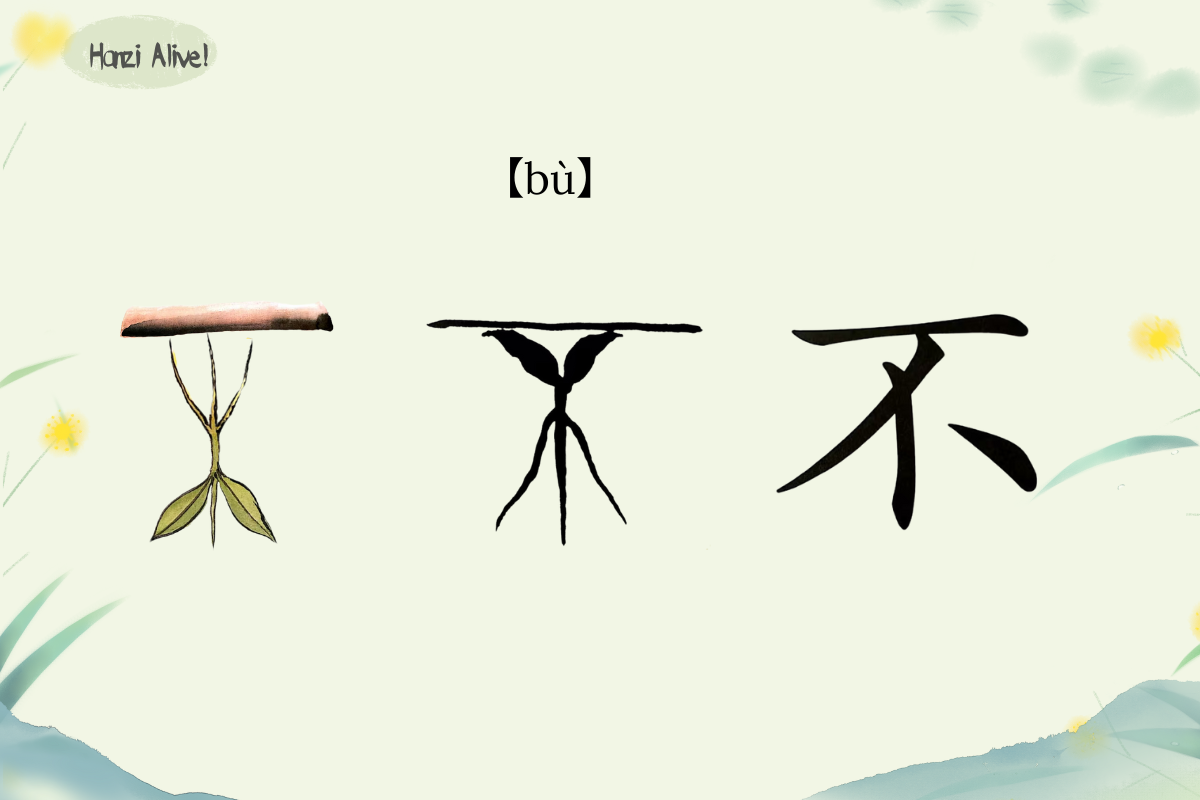Hanzi Alive!(18)
Chinese characters are the philosophy in the soil - the tender sprout breaking through the soil is '生' (shēng), while the embryo hidden underground is '不' (bù). These two characters share the same land, telling the story of life with two different attitudes: saying 'YES' and 'NO'.
生(shēng)
Explanation
- A few blades of grass growing from the ground become "生," which means "to be born," "to grow," "to live," or "getting something where there was nothing before."
Example
- Life is full of surprises.
生活充满惊喜。
shēng huó chōng mǎn jīng xǐ. - This plant grows very fast.
这种植物生长很快。
zhè zhǒng zhí wù shēng zhǎng hěn kuài.
Find and circle "生" in the image
不(bù)
Explanation
- Underground, there is a seed with roots but has not sprouted yet, symbolizing an embryo, something not yet mature. Over time, this character evolved to become "不," which simply means "not." When you disagree with someone or say that something is "not good," you can write "不好."
Example
- I don't like spicy food.
我不喜欢辣的食物。
wǒ bù xǐ huān là de shí wù. - Don't run in the hallway.
不要在走廊里跑。
bú yào zài zǒu láng lǐ pǎo.
Find and circle "不" in the image

Now you understand this natural debate: as '生' stretches upwards with hope, '不' gathers strength in the soil. The Chinese rejection actually conceals the gentleness that has not yet broken through - just like a seed saying to spring: saying 'NO' now is for a better 'YES' later on.


